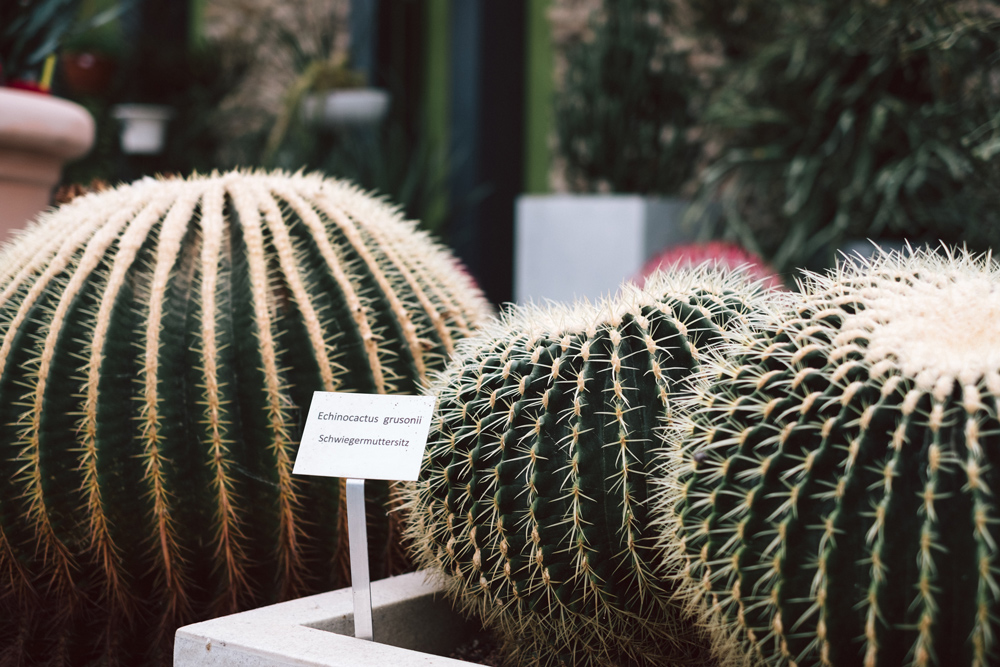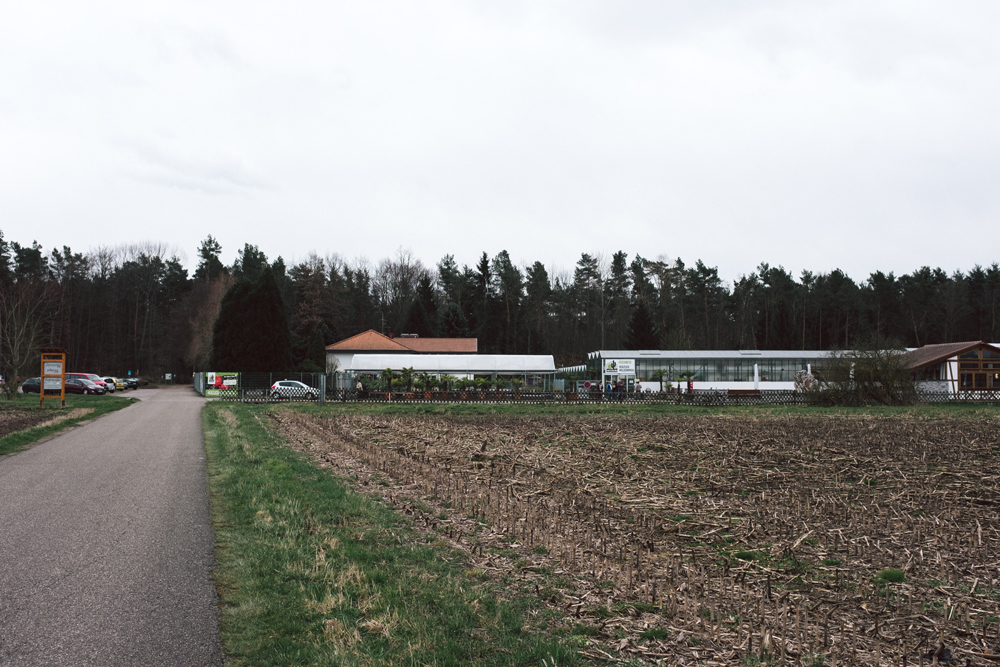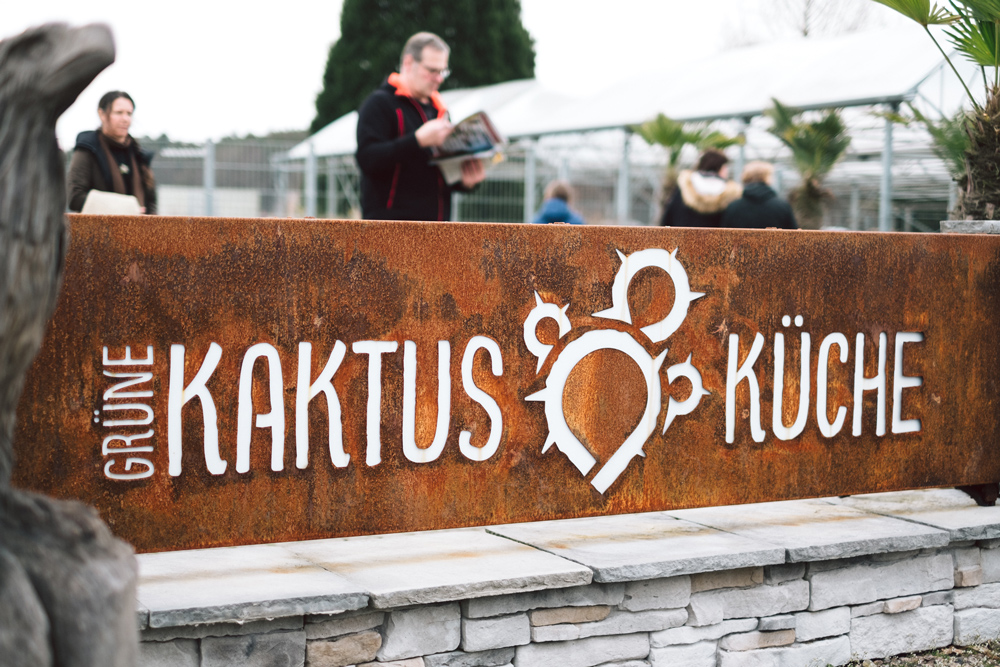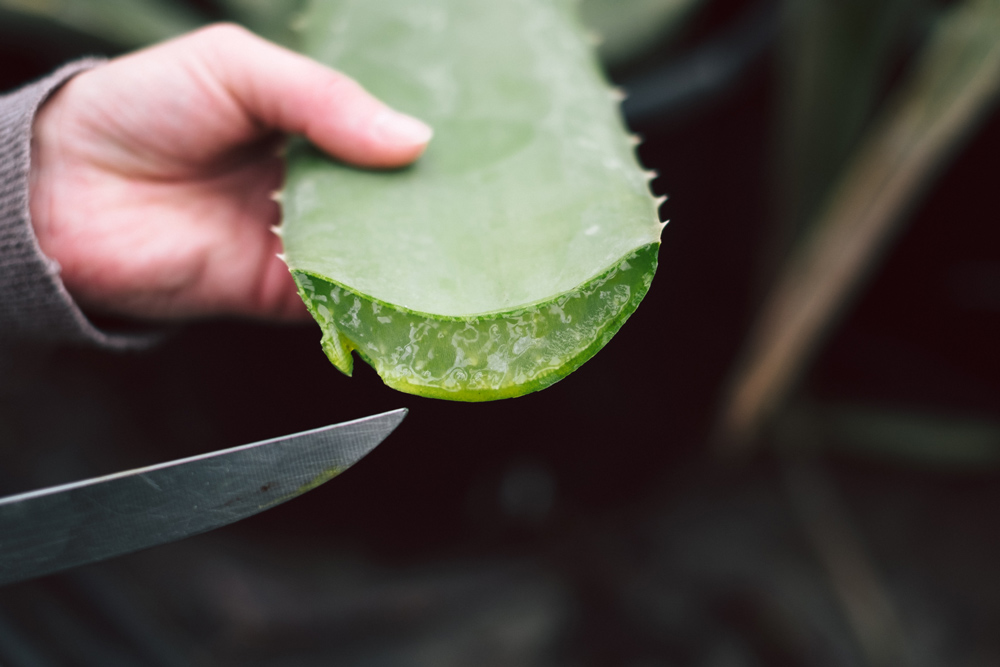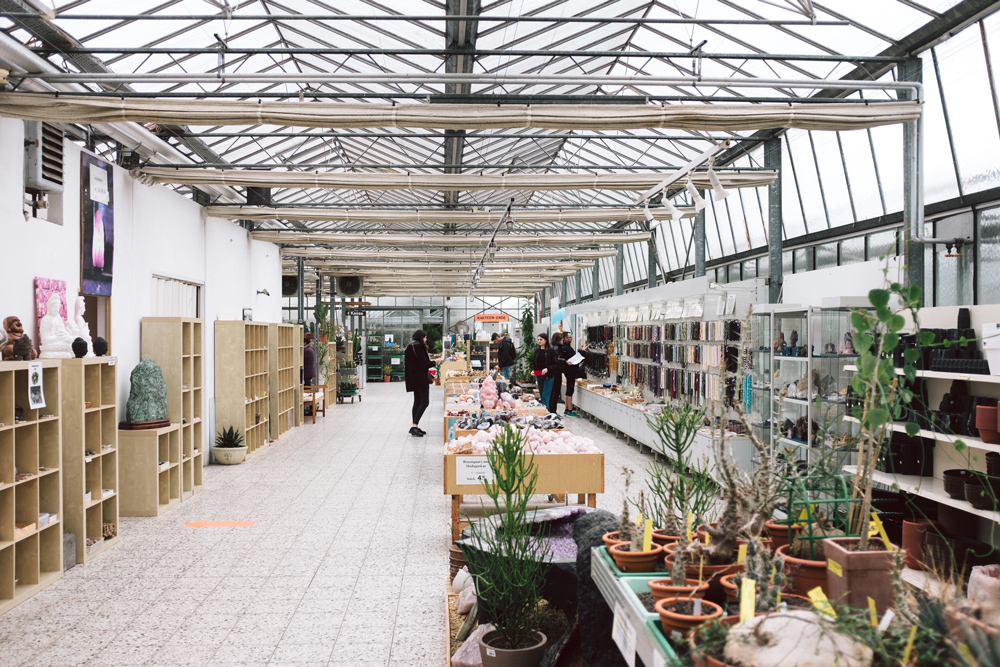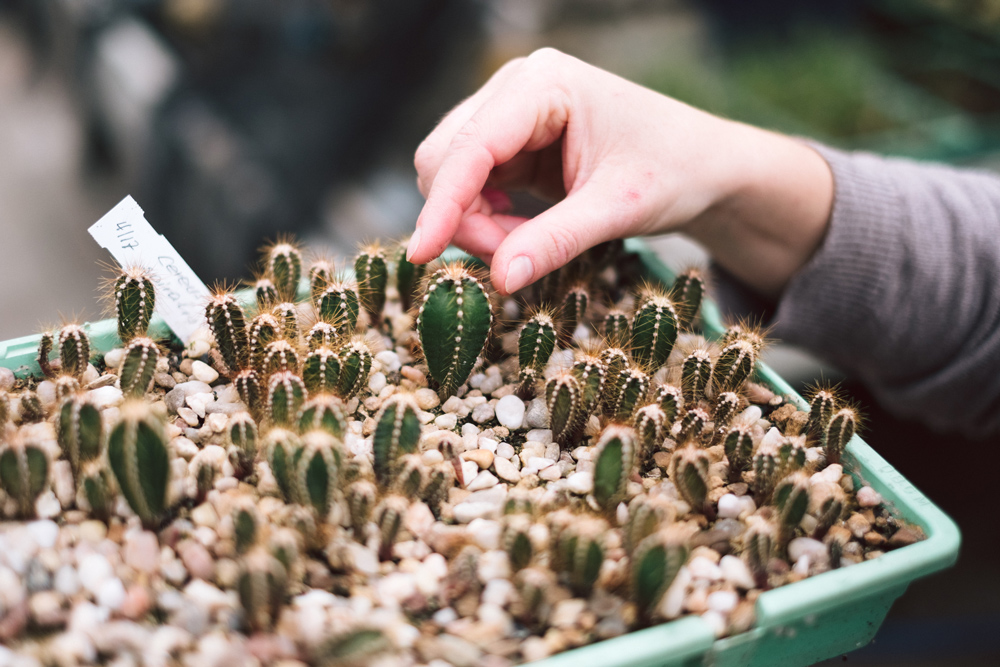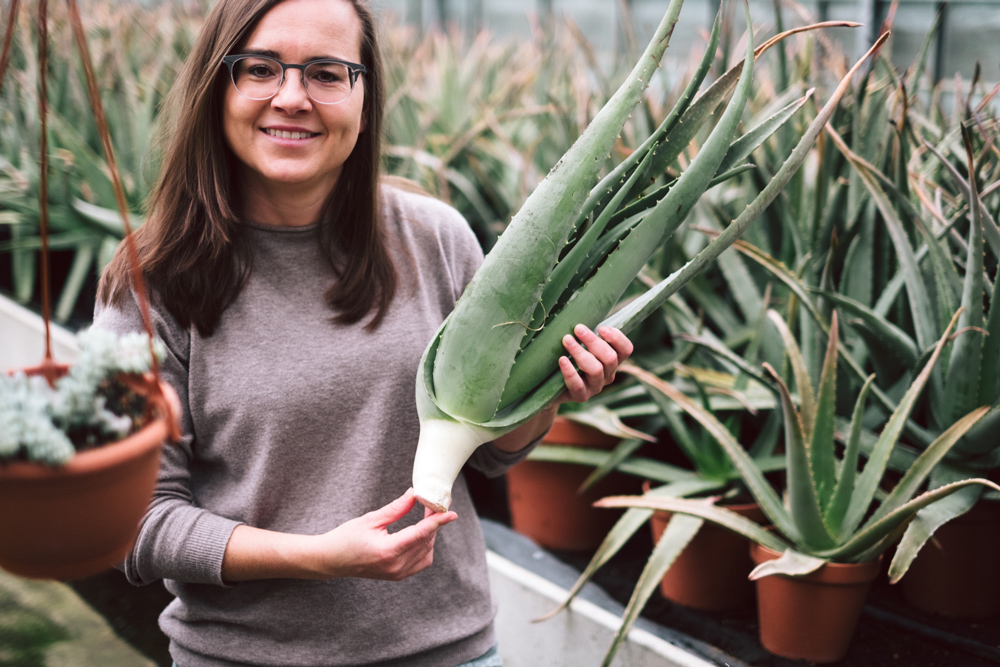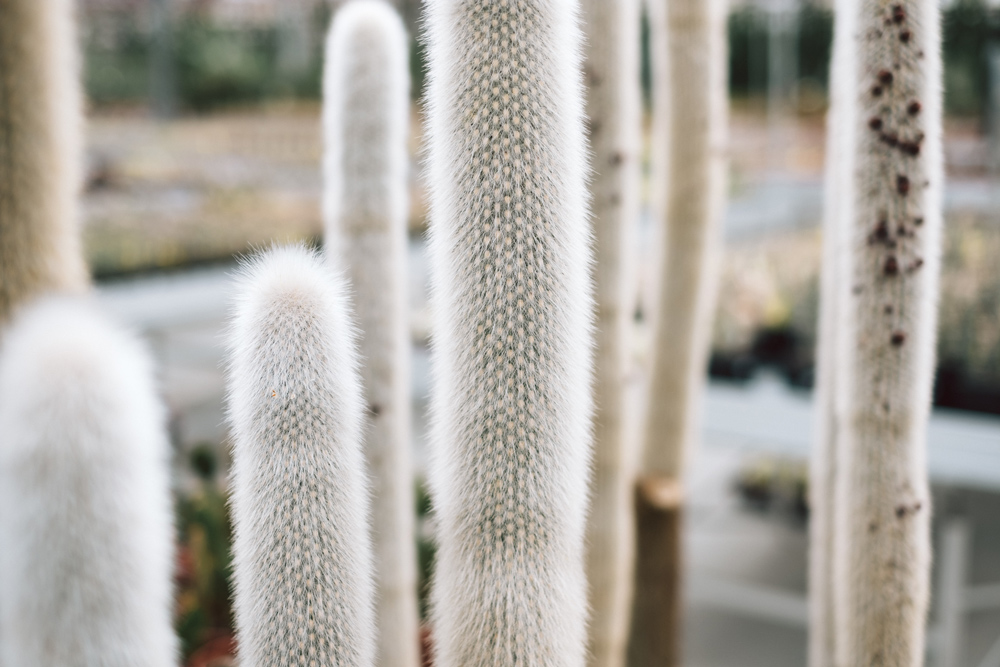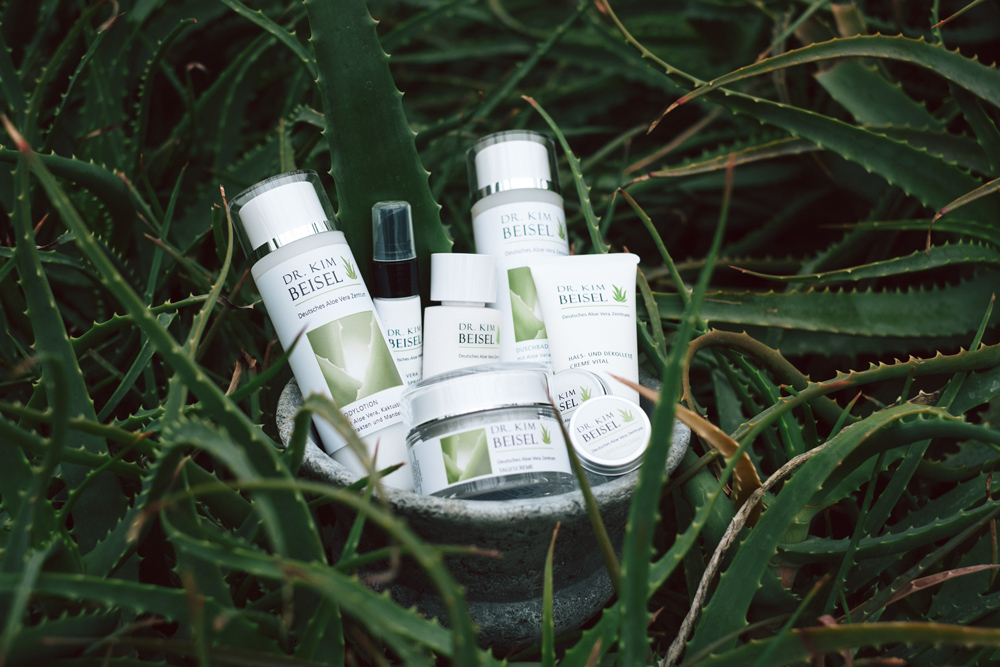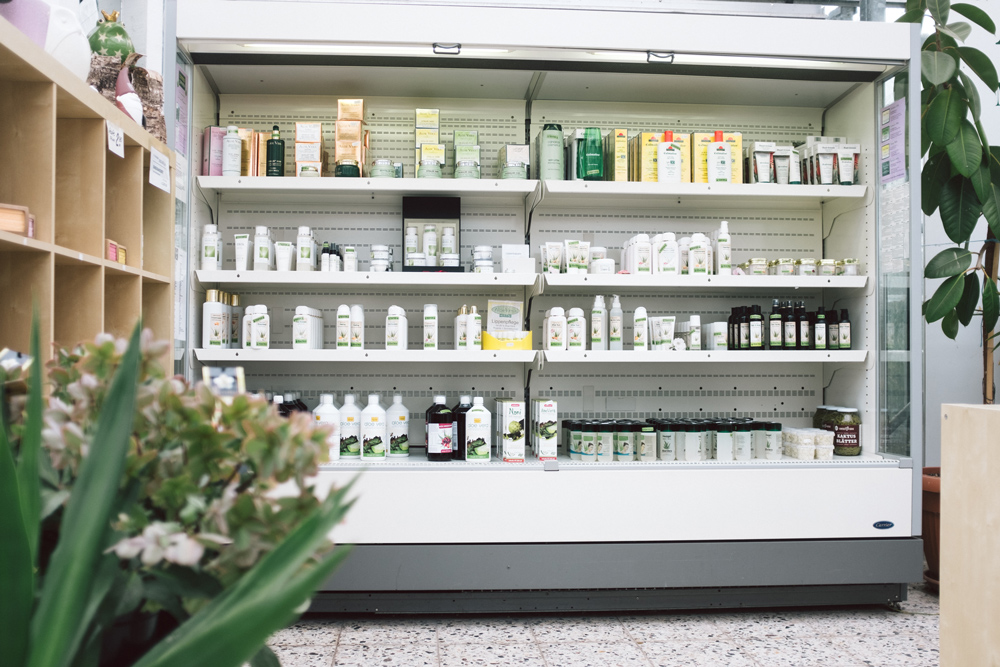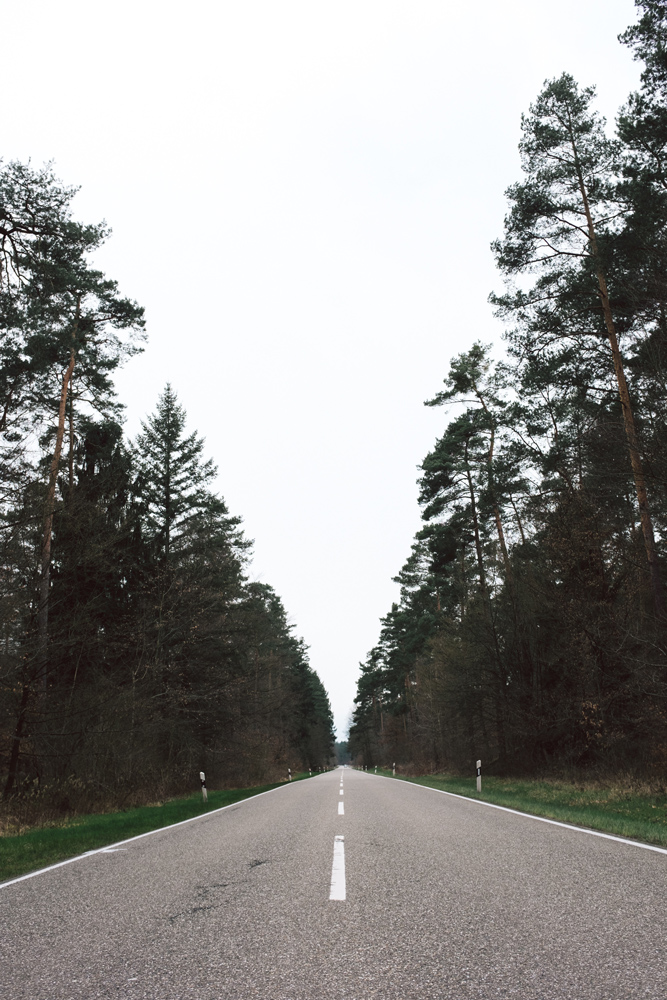You travel around the world to find something you’ve never tasted before, and here, in Steinfeld in the Southern Palatinate region, is where you find yourself being served a cactus fig sorbet, a wrap with pickled cactus strips, cactus soup and even a Flammkuchen (tarte flambée) made of cactus.
Located at the southern edge of Rhine-Neckar Metropolitan Region, only five kilometres from the border to France, “Grüne Kaktus-Küche” (the Green Cactus Kitchen) is the first restaurant in Europe to put cacti at the centre of its dishes. The menu presents lots of vegetarian and vegan foods, most of them organic, as is the Mexican highland coffee. The poetry inherent in the culinary cactus delights spreads over to the names of the countless cacti and succulent plants in the neighbouring 7,000 square-metre greenhouse. Here, you find corkscrew cacti at its earliest and oldest ages, up to several decades; grafted chin cacti are in blossom with stunning colours; winding filigree coils of the delicate “Greisenhaar” (“old man’s hair”); and one huge ball-shaped “mother-in-law’s cushion.”
In Cactus Land, you can spend hours marvelling and looking around, and you can also purchase the cacti. But grasping the differences between agave, opuntia, and cactus takes thorough study and devotion. In Cactus Land you learn that cacti belong to the succulents family. Succulent means juice-conserving which is a collective term for plants that have adapted to arid climates. In the open countryside, cacti flourish in an apparently hostile environment, and the beauty of their blossoms is stunning. How could you ever count all those spines, know all the plants by name? There is, in fact, one person, who knows them all, including the numerous scientific Latin terms: Dr. Kim Beisel. Holding a PhD in botany, she grew up on this relocated farm near Steinfeld, helping create Cactus Land from what was once a wholesale establishment.
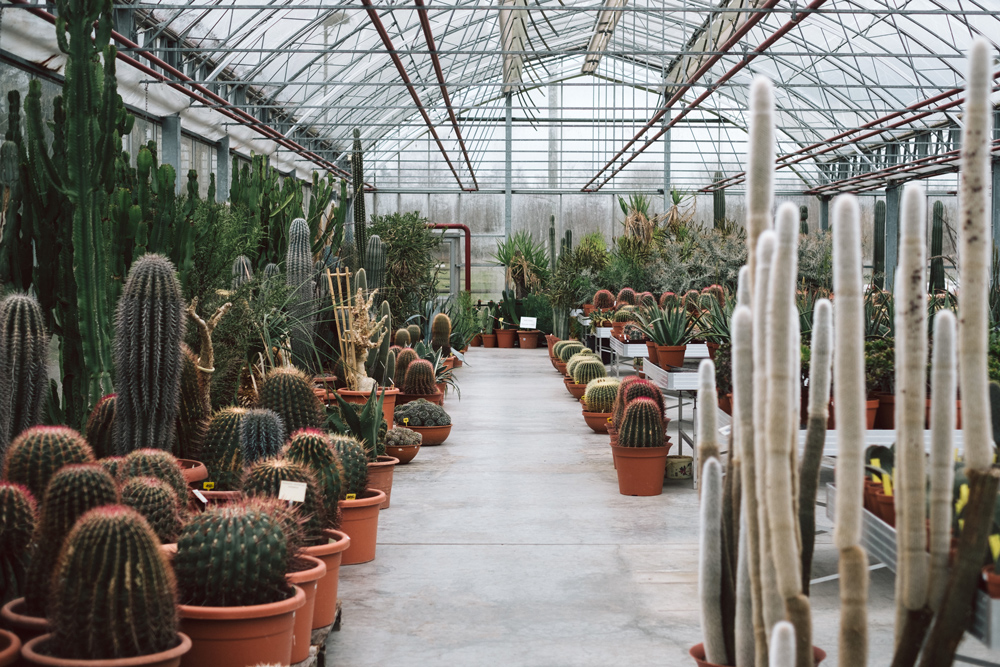
Her father, Karl-Werner, set the company up in 1978. This was the fundament for what would become one of the most attractive destinations of the region. Then, her parents approached retirement. Kim could have made a scientific career overseas. And yet, she decided to – as a member of the succeeding generation – establish a flourishing enterprise that rests on three pillars: firstly the very Cactus Land, secondly Cactus Kitchen, and thirdly the “Deutsches Aloe-Vera-Zentrum” (the German Centre for Aloe Vera) – which offer, amongst other things, their own brand of natural cosmetics products for sale.
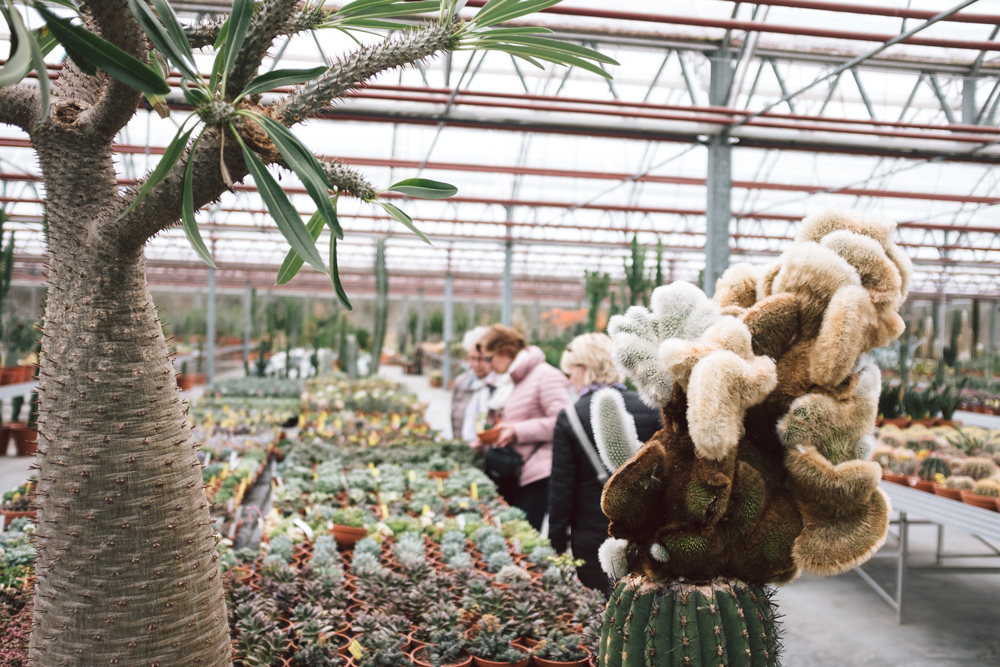
Today, the Palatinate Beisel family run their business on a global scale, they ship the tropical plants around the world. “Yesterday, we had cactus fans visiting from Scotland,” says Kim Beisel. Entire mini-cactus cargo units are packed here ready for shipment, destined for markets from Greece to China. The Palatinate business is renowned there for its expertise and the cactus is a symbol of good luck in the Middle Kingdom.
